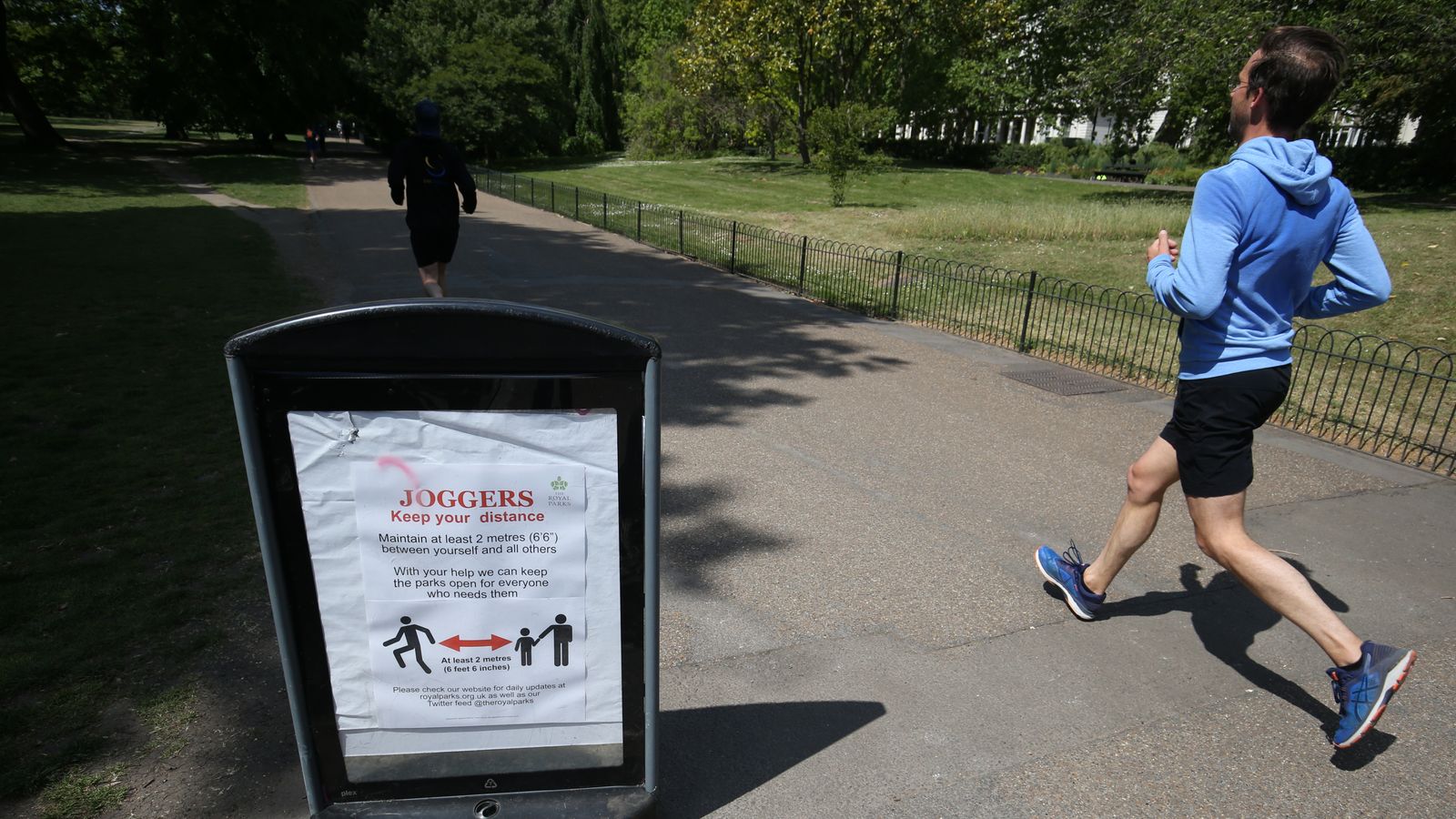Rishi Sunak is facing a backlash after claiming that scientists were given too much power during the pandemic and concerns about the economic and social impacts of lockdowns were not properly considered.
The former chancellor, one of the key players in government during the crisis, said it was “wrong to empower” scientists and that he was gagged from talking about the negative impact of draconian restrictions.
He also claimed that the Scientific Advisory Group for Emergencies (SAGE) edited its minutes to hide dissenting opinions and accused them of “fear-messaging”.
Politics Hub: Minister pours cold water on cost of living help suggestion
But scientists and Number 10 insiders have hit out at the comments, branding them “wrong” and “dangerous rubbish”.
SAGE member Professor Graham Medley insisted it was the government that made the decisions, not the scientists.
He said: “Government have the power, so if one member of cabinet thinks that scientific advice was too ’empowered’ then it is a criticism of their colleagues rather than the scientists.
Rishi Sunak claims he was gagged over negative effects of COVID lockdowns and scientists had too much influence over decision making
COVID-19: Routine asymptomatic testing among NHS and care home workers to be ‘paused’ from end of this month
COVID jab targeting both original strain and Omicron to be rolled out from 5 September
“The SAGE meetings were about the science, not the policy options, and the minutes reflect the scientific consensus at the time.”
Mr Sunak made his comments in an interview with The Spectator, called “the inside story of lockdown”.
The Tory leadership hopeful suggested lockdowns were imposed after ministers were shown gloomy scientific analysis pointing to horrifying “scenarios”, but claimed it was not clear “how these all-important scenarios had been calculated”.
He claimed he had often been a lone voice of resistance to lockdown measures within the government, saying he was left “furious” during one meeting because colleagues refused to acknowledge the wider impact restrictions were having on schools and the NHS.
“We didn’t talk at all about missed (doctors’) appointments, or the backlog building in the NHS in a massive way. That was never part of it,” he said.
“Whoever wrote the minutes for the SAGE meetings – condensing its discussions into guidance for government – would set the policy of the nation. No one, not even cabinet members, would know how these decisions were reached.”
But Prof Medley said it was not the job of scientists to decide whether to close schools, but rather “to say what the impact on the epidemic might be”.
And Prof Ian Boyd, who was also on SAGE, insisted members were “acutely aware of the trade-offs”.
“Especially in the early stages of the pandemic an immense amount was not known, and this meant that risks were high, and therefore precaution was called for,” he said.
“SAGE did not make decisions, it tried to reflect its uncertainties in its advice and it worked by consensus.
“Members were acutely aware of the trade-offs associated with implementing specific actions. To the extent that it was possible with the information available at the time, these trade-offs were included within the uncertainty expressed in the advice.”
In his article, Mr Sunak claimed meetings were “literally me around that table, just fighting”, which “was incredibly uncomfortable every single time”.
Please use Chrome browser for a more accessible video player
He claims he became “very emotional” at times about the impact of school closures on children’s education and was left “furious” after one meeting in which his concerns were met with a “big silence”.
He said that if the trade-offs had been acknowledged from the beginning, in March 2020 when the first lockdown was imposed, then different decisions could have been taken.
But Boris Johnson’s former communications chief, Lee Cain, dismissed Mr Sunak’s assessment of the situation, saying he is “simply wrong”.
Mr Cain said: “It would have been morally irresponsible of the government not to implement lockdown in spring 2020 – the failure to do so would have killed tens of thousands of people who survived COVID.
“In addition, without lockdown the NHS simply could not have survived and would have been overwhelmed.”
He also said Number 10, the Treasury and the Department of Health and Social Care “met multiple times daily and discussed the trade-offs”.
“We all knew lockdown was a blunt instrument that had many downsides but in a world without vaccinations it was the best option available,” Mr Cain said.
Dominic Cummings, Mr Johnson’s former senior adviser, said Mr Sunak’s comments were “dangerous rubbish” and pinned the blame unfairly on the former prime minister and others.
Read More:
Rishi Sunak says he won’t quit politics if he loses Tory leadership race
Rishi Sunak: The prime minister hopeful who went from favourite to underdog
However, Mr Sunak has claimed he did not suggest a lockdown could have been avoided as he defended his remarks today.
Mr Sunak told BBC Radio 4’s World At One programme: “That’s not the point I was making. The point I was making was that looking back on it, it is right that we learned the lessons from it.
“Looking back, one of my reflections was that, you know, when things like that happen, I think we need to have all the facts and involve the trade-offs involved in those decisions very openly and honestly.”
In response to the claims, No 10 defended its record on the pandemic, saying that throughout the crisis, “public health, education and the economy were central to the difficult decisions made”.
A spokesperson added: “At every point, ministers made collective decisions which considered a wide range of expert advice available at the time in order to protect public health.”






